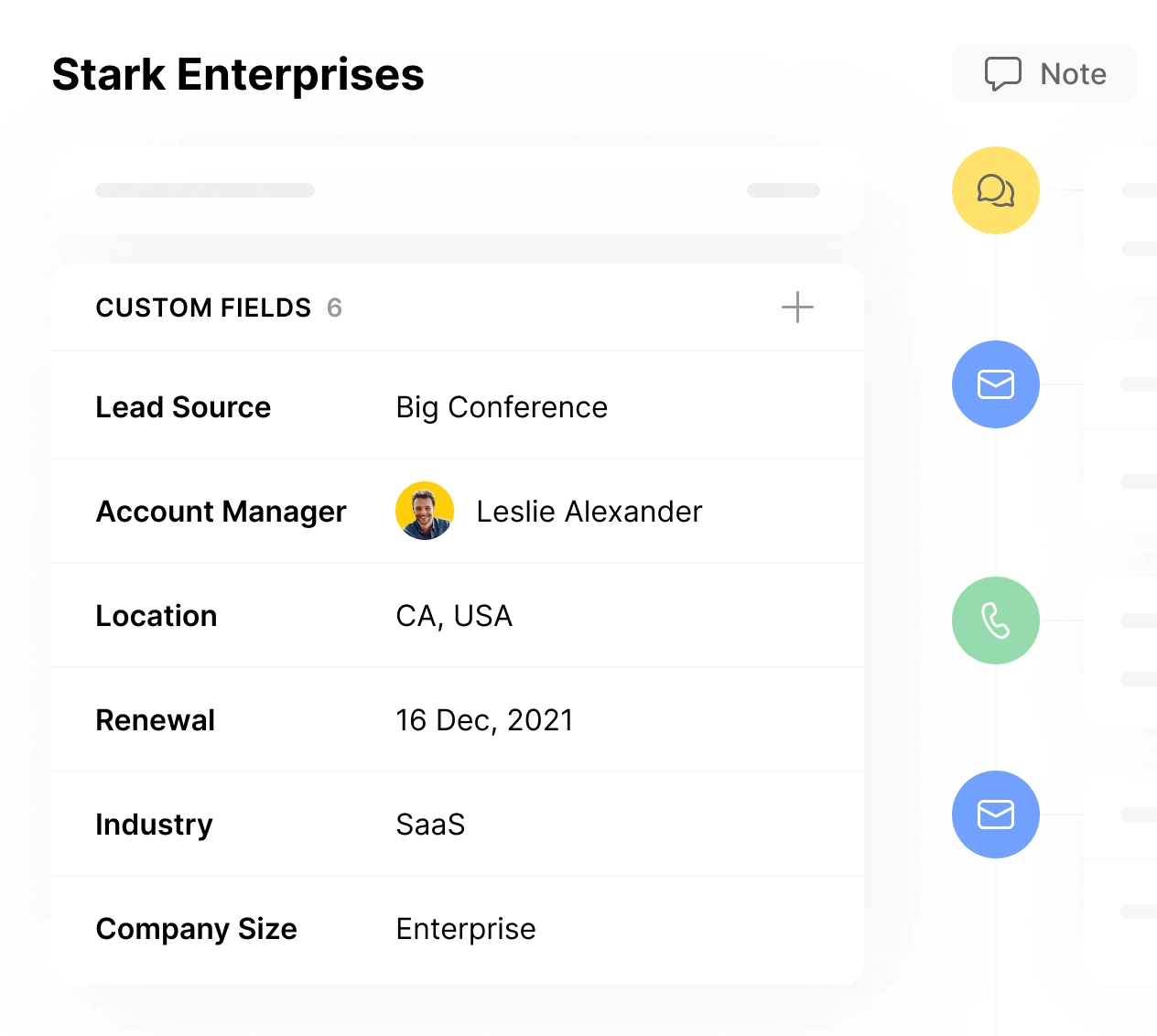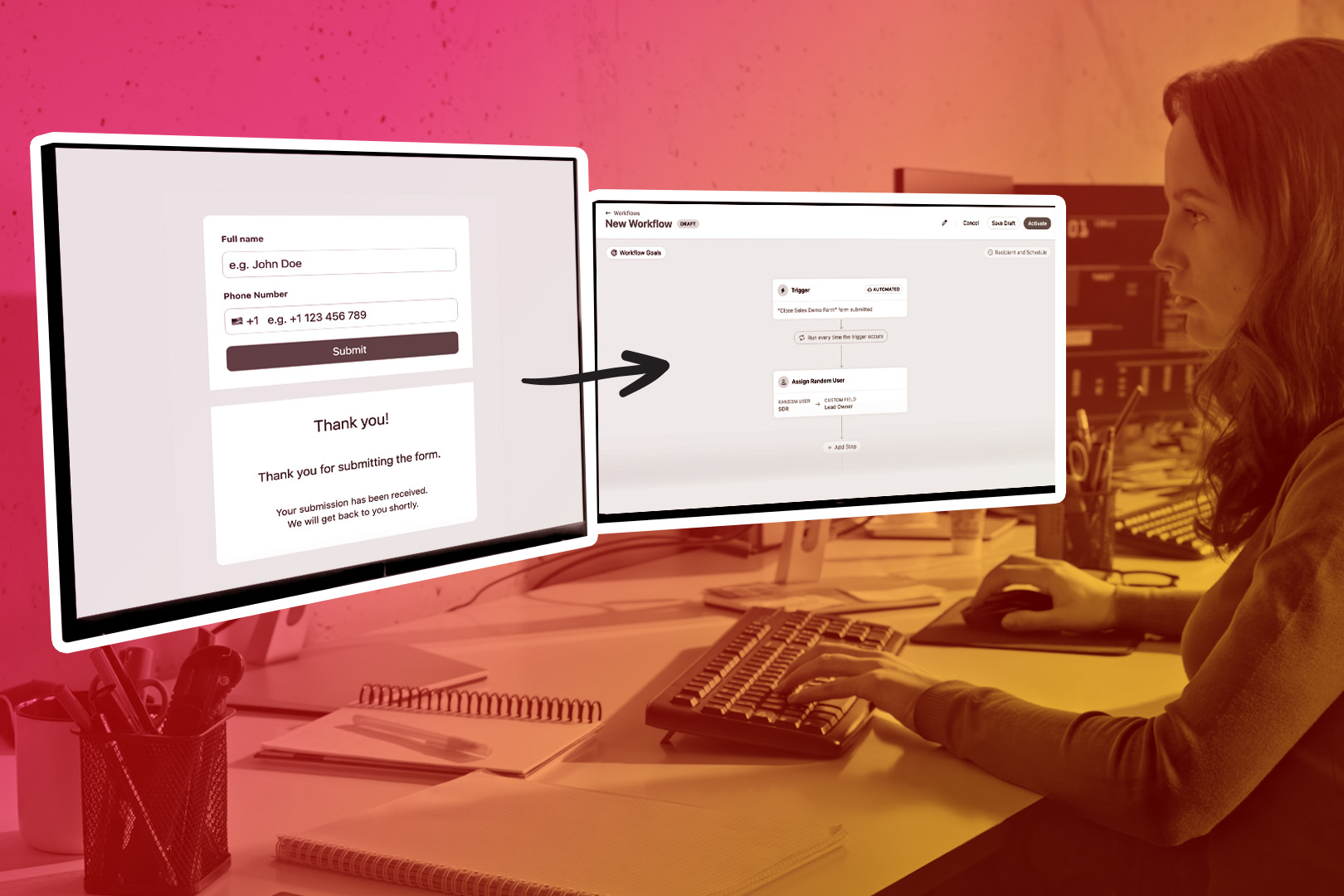How much control does your company have over its sales? How much direct contact does your company have with your customers?
The way you treat your customers can define your brand—and it can make or break your reputation.
If you’re not in direct contact with customers, how do you know they’re seeing your best side?
This is where the direct sales model shines: your company maintains direct customer contact via your website or sales reps, controlling the experience and the brand.
Let’s discuss:
- What is the direct sales model?
- How the direct sales model works
- 5 direct sales model examples
- Direct sales model advantages and disadvantages
- How to master the direct sales model at your company
What is the Direct Sales Model?
The direct sales model describes businesses that sell their products or services directly to customers through their salespeople. This may mean hiring an
or working with independent
who set their own terms and earn a commission for each deal they close.
In the direct sales model, customers purchase directly from your company (site, store, or reps). You may also use partners, but direct remains a primary motion.
So, the salesperson is a customer’s only connection to the product they want to purchase.
For example, if you’re a SaaS company selling a software product to other companies, their connection to your product will be through your website or your sales team.
Direct sales gives companies more control over how their products are being sold and by whom.
What is the Indirect Sales Model?
The indirect sales model involves businesses selling their products through a third party. In most cases, indirect sales is used by manufacturers to sell products through distributors or retail stores. This allows the company to focus on the quality of the product they sell, not the distribution of it.
With indirect sales, the company doesn’t have to think about getting their product to the masses—a third party handles distribution and much of demand capture. Trade-off: reduced control over pricing, positioning, and brand experience.
For example, a clothing company may produce quality products and ship them to retailers and distributors. Those stores then market and sell the clothes to get people into their stores.
What’s the Main Difference Between the Direct Sales Model & the Indirect Sales Methodology?
Bottom line: Direct = more control over pricing, messaging, and CX.
Indirect = more reach/scale, less control.
The direct sales model gives companies closer control over the work of salespeople, while indirect sales means the company relinquishes direct control over the sale of their product.

How the Direct Sales Model Works
While the actual sales process will vary from business to business, here is a general overview of how the direct sales model works in 4 steps:
First, the company produces a product. This could be a physical product, software, or SaaS product, or services like insurance policies or real estate.
Second, the company chooses who will distribute and sell that product. In the case of a SaaS product, this could be an inside sales team run by a sales manager or Director of Sales. In other cases, independent agents might run their own sales machine (like real estate and insurance agents).
Next, those salespeople hustle to sell the product you’ve given them. An inside sales team at a B2B SaaS company works through the sales playbook you’ve put together, collecting new leads from marketing or their own prospecting efforts and then working with them to close the sale. Independent sales agents in the direct sales model work independently to drum up business and create their own playbooks to close deals.
Finally, sales are reported back to the company, and the salespeople earn commissions from their closed deals. The company decides when to increase or decrease efforts, whether to pivot their sales process or target audience, and how much commission its salespeople earn for each sale.
5 Direct Sales Model Examples & Types
The direct sales model can look very different depending on the company, the product, and the sales team running down new deals.
To give you a better idea of how this model works, here are four standard direct sales model examples you’ll see in the real world:
1. B2B Sales
B2B companies that use an inside sales team to sell their products or services are one form of the direct sales model.
Whether the company is selling physical products like paper and pens, or they’re selling SaaS products like marketing or data warehousing software, their sales team is the only way for new leads and customers to purchase from the company.

2. Real Estate Sales
Real estate is an interesting form of direct sales since the main company doesn’t actually produce any product. In this case, the product is a building or piece of land, and it’s the company’s job to sell it.
Real estate companies often work with independent sales consultants (i.e. real estate agents) to sell for them. Real estate agents generate sales by either attracting their own clientele or employing their own strategies for successful selling, such as effective real estate marketing. But they still earn based on commissions coming down from the main company after every sale.
3. Insurance Sales
Insurance sales uses the direct sales model in a very similar way to real estate: both use independent sales agents to work with prospects and customers and close deals.
The interesting part about insurance is that the sales are recurring. So, an insurance agent earns a commission off their sales, but each new sale can earn them more over time as they develop and maintain a relationship with the customer.
4. Host Sales
If you’ve ever been invited to a party where your friend tried to get you to buy something you may or may not have needed, then you know what host sales are.
In this direct sales model example, the company works with many brand advocates (not necessarily salespeople by profession) who try to sell the product within their network of friends and acquaintances.
5. D2C Companies
D2C, or direct-to-consumer, is becoming more popular with retail brands worldwide with a solid online presence. In this type of direct sales model, customers go directly to the companies to purchase the products they want rather than having their products available through distributors or stores.
Brands like Warby Parker, Stitch Fix, and Dollar Shave Club are examples of DTC brands killing this model.
Direct Sales Model Advantages and Disadvantages
Every sales model has its pros and cons. So, how do you know if the direct sales model is right for your business?
Take a look at these two lists, and then determine for yourself whether the benefits outweigh the challenges:
Benefits & Advantages of the Direct Sales Model
When the direct sales model works for your brand, here are the benefits you’ll see:
- Better control over your brand image: You’re in control of sales, so you’re in control of how customers see you.
- Ability to build relationships with customers: When you’re selling through another distributor, the customer isn’t loyal to you—they’ll be loyal to where they found your product. Direct sales offers the ability to form direct, deeper relationships with your customers.
- Easier collaboration across different teams: If you’re looking for better alignment between marketing, sales, product development, and other customer-facing teams, you’ll want to keep sales directly under your control.
- A more targeted approach to customers: Direct sales means direct access to your customers. That means you don’t need to rely on a distributor’s sales data to tell you how your product is being received by the market. You can take your own data and use it to adjust and adapt to target the right customers.
- Ability to pivot faster to meet market needs: With real-time updates on customer data, you can make faster decisions in your sales process (and your product) to meet the needs of your customers.
Challenges & Disadvantages of the Direct Sales Model
The direct sales model gives you control but also entails a hefty load of responsibility. Here are some of the disadvantages you’ll need to consider:
- Increased responsibility for distribution: When you rely on a distributor, marketing, and sales fall under their umbrella. With direct sales, you need to build separate teams for marketing, lead generation, and sales, as well as organize strategies for each.
- Extra costs for recruiting and retaining top talent: Hiring can be fierce. If you plan on developing a direct sales model for your business, you need to be willing to fight to keep top talent in your company.
- More leadership roles necessary: In addition to building marketing and sales teams, you’ll need leadership for these teams. That means hiring a full-time sales director and someone who can handle operations for both of these teams.
- Extra time spent developing and using a brand voice: A strong brand voice is key to success in direct sales. While it’s a great advantage when you can pull it off, it does require effort to do it right.

Is the Direct Sales Model Right for Your Business?
So you’re an entrepreneur wondering which direction to take with your startup or company. The direct sales model takes more time and effort—so can it work for a startup?
In short, absolutely. Here are some clear signs that your business is a good fit for the direct sales model:
- Your product can easily be discovered and purchased online
- You have marketing and sales experts in your founding team (or you can add them easily)
- Your company already has a strong brand voice
- Your product already has a solid following
- You, as the startup founder, are ready to get your hands dirty and sell your product directly to customers (and if you're an early-stage founder, we absolutely do recommend that you get involved in selling your product)
While it may be slightly more intimidating, direct sales can reap rich results for entrepreneurs who hustle to get things done.










.jpg)

